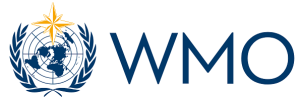Eduard Podgaiskii - A programme of open online academic lectures as a tool to increase visibility of research schools and strengthen university collaboration
Hello, I’m Eduard Podgaiskii from the Russian State Hydrometeorological University. Recently I found this picture which made me think how we could add value to our learning experience in this pandemic situation and not just trying to coop with this. I’m trying to offer one solution in my paper. Hyperlinks will give you some illustrations to the text (some of them lead to pages in Russian, these are shown as RU).

Eduard Podgaiskii (RSHU)
A programme of open online academic lectures as a tool to increase visibility of research schools and strengthen university collaboration
In March 2020, the world’s governments began implementing measures to limit the spread of the coronavirus, closing schools and moving to distance learning almost overnight. About 150 countries fully closed their schools, according to UNESCO. While CALMet community was advocating distance learning over the years, massive and abrupt shift to distance mode became stressful for many, if not for all.
The Russian State Hydrometeorological University was no exception, with distance learning being supported by a group of enthusiasts without the clear and concerted institutional policy of its development. Yet, some resources were in place at the start of the crisis: university-wide Moodle platform (RU) was used by some teachers as a complementary resource for their courses; Mirapolis Virtual Room (RU) software was purchased for keynote webinars at the department of correspondence learning; open and distance learning unit was active to technically support academic staff efforts to offer online courses; overall, about 25% of staff members had some skills and practice of teaching online.
The first weeks of sudden online mode were dedicated to procedural and infrastructural issues. Do all teachers have the tools and skills to offer training materials online? Do students know where to get their assignments and when to complete them? Tutors were appointed to each student group to help following the academic schedule and supervise their academic performance.
Many teachers were creative enough in finding the new ways to retain students’ attention to their courses. One of the most popular activity was inviting external experts to discuss certain topics, meeting practitioners online. In the pre-Covid past, getting an operational meteorologist or even an observer to the class could hardly be possible due to time constraints and organizational limitations. With online communications getting widespread, many took advantage of such opportunities.
In autumn 2020, a regular meeting of the Academic Association for Applied Hydrometeorology was held online, the organization that currently unites 40 members from 15 Russian and 5 ex-USSR universities where degrees in hydrology and/or meteorology are offered. An idea emerged there to promote the virtual mobility of academic staff and students during the pandemic restrictions, and starting from Spring 2021 semester, leading RSHU professors offered a cycle of open lectures(RU), introducing the main areas of their research and pedagogical activities. Overall, 10 such lectures were offered between March and May via ZOOM videoconferencing, and attendance varied from 10 to 60 connections. The initiative helped strengthening the network of universities involved in hydrometeorological education, enabling new opportunities such as joint supervision of student graduate projects, peer-reviews and expert advisories.
This simple, easily arranged and low-cost networking tool became the core element of the project proposal under the Team Finland Knowledge programme, where RSHU teamed up with 2 more Russian and 3 Finnish universities to set up the Finnish-Russian Earth System Research Network. The project will commence in 2022 and will last for 2 years, aimed at opening up new opportunities for research collaboration in atmospheric and Earth system sciences.
In the meantime, in our strive to add value to readily available resources, we currently replicate the success of the first webinar cycle in a different setting. The ACT! webinar series is offered to MSc students at three Russian universities as part of their “Introduction to Sustainable Development” course and will portray a diversity of SDG-related issues and challenges in relation to the Arctic and mountain areas, offering the analytical overview of relevant cases. Eventually, the webinar recordings are going to become the framework for the MOOC on SDGs for Arctic and high mountains.
https://etrp.wmo.int/pluginfile.php/40992/mod_page/content/10/CALMetXIV-Podgaiskii.ppt
